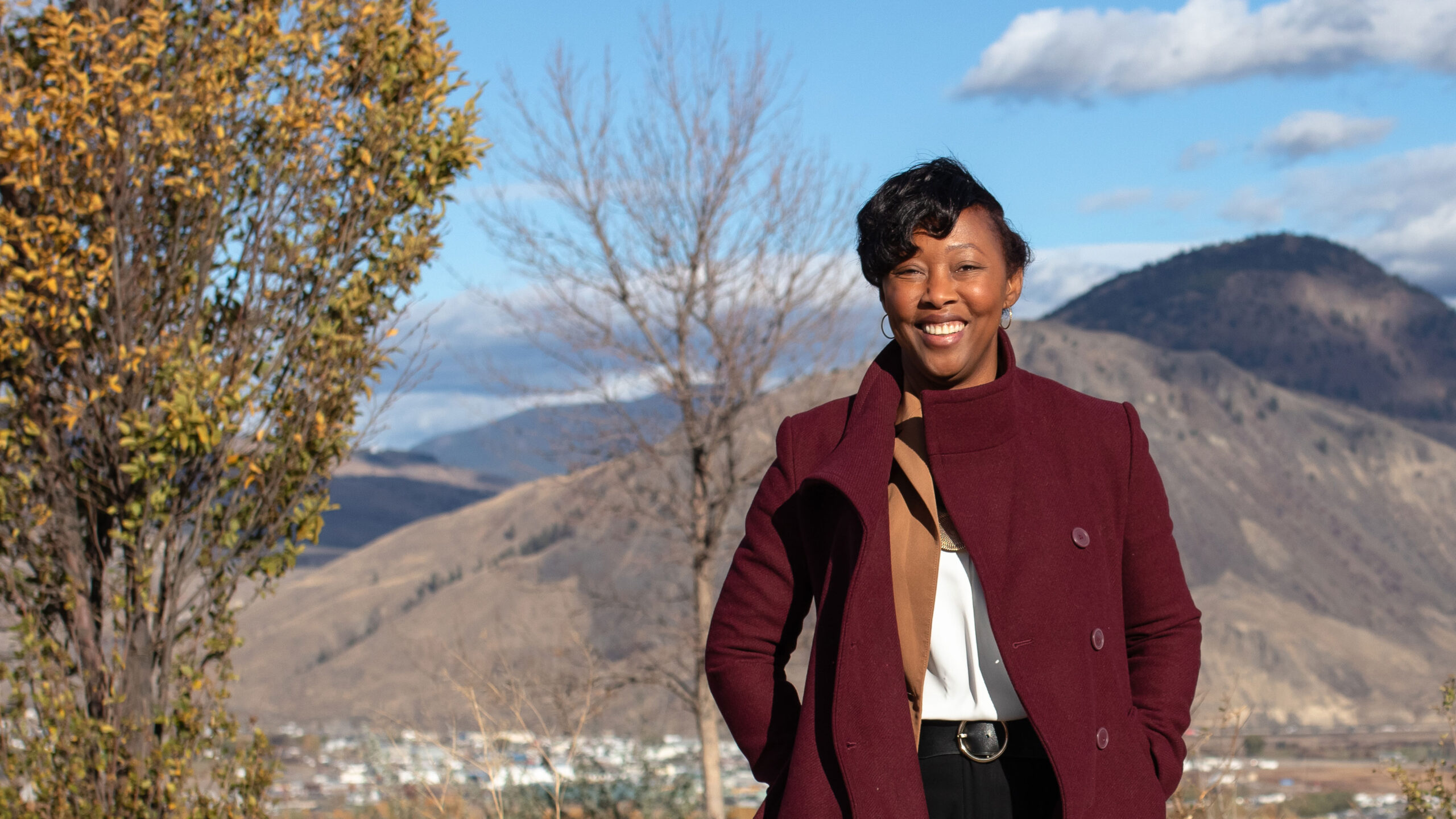When Tanya Manning-Lewis speaks about her journey from Jamaica to Canada, her words radiate gratitude, humility, and conviction. “You can have many degrees in the world,” she says, “but if you are not kind, what exactly are you?”
An assistant teaching professor in the School of Education, Manning-Lewis brings more than two decades of experience as a teacher, researcher, and advocate for inclusive education. Before joining TRU in 2022, she taught and led initiatives across Jamaica, the Caribbean, and Canada, including helping launch the first anti-racism project in the Faculty of Education at the University of Victoria. Her scholarship bridges social justice, race, gender, and post-colonial theory, all driven by a deep belief in the transformative power of education.
“I grew up surrounded by activists,” Manning-Lewis said. “My mother, my aunt — they were helping women and vulnerable people. From the age of nine, I was already sitting in community meetings. It taught me early that when you receive, you give back.”
That sense of purpose continues to shape her research and teaching philosophy. A 2023 recipient of the American Educational Research Association’s Outstanding Research Paper Award, Manning-Lewis explores how race, language, and identity influence learning and belonging. As a racialized Afro-Caribbean post-colonial scholar, she uses decolonizing pedagogies and visual research methods — such as graphic novels — to center the voices of underrepresented groups. She is also collaborating with educators across British Columbia to develop a province-wide Black curriculum, an initiative that connects her academic work with her lifelong commitment to equity and representation.
Manning Lewis’ path in education began in Jamaica, where she served as a teacher and later as a school leader. Growing up, she was adventurous and spirited — “a little tomboyish,” she laughs — spending days climbing trees, boating, and exploring nature. She credits those carefree years and her grandmother’s influence for teaching her balance and empathy. “My grandmother taught me that kindness matters more than anything. She had only a basic education, but she carried wisdom that no degree could give,” Manning-Lewis said.
Outside the classroom, Manning-Lewis leads a vibrant, family-centered life. Weekends often find her traveling to her sons’ soccer tournaments, hiking local trails, or watching movies together on Friday nights. “I’m not a winter person,” Manning-Lewis said, “but my kids love skiing — so I cheer from the sidelines.” When she finally has quiet time, she indulges in Agatha Christie mysteries and a bowl of ice cream.
Manning-Lewis’s travels continue to influence her worldview. A recent trip to Ghana left a lasting mark: “It changed who I am for good. I felt like I was home — that immediate connection with the people shifted my perspective.” Manning-Lewis often brings that spirit of cultural exchange into her teaching, wearing colorful African prints and inviting students to share elements of their own heritage. “My students from Ghana, Nigeria, Morocco, Sri Lanka — they bring me jewelry and food from home. It’s such a beautiful exchange. They teach me, too.”
To her younger self — and to the many future educators she mentors — her advice remains steady: “You are good enough. Don’t worry so much about what others think. Stay true to what’s important to you.”
What you see with Dr. Manning-Lewis is precisely what you get: a compassionate educator whose life and work continue to inspire, blending intellect with empathy, scholarship with humanity, and heart with purpose. In both the classroom and the community, she reminds her students that education is not only about learning, it’s also about liberation.


An interesting report.
Thank you for this wonderful story, Ellen.
Dr. Manning- Lewis is the best. She treat her students like family.